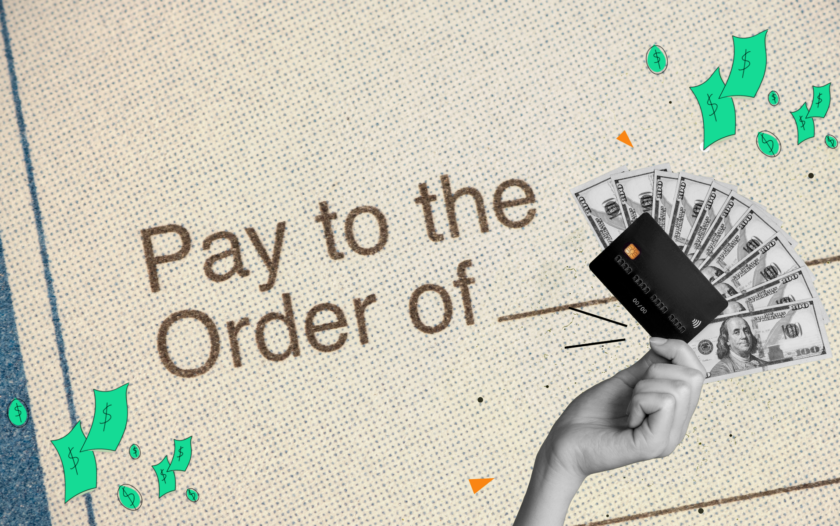Money Order With Credit Card
About Harrison
Harrison Pierce is a writer and a digital nomad, specializing in personal finance with a focus on credit cards. He is a graduate of the University of North Carolina at Chapel Hill with a major in sociology and is currently traveling the world.
Read full bio
At a Glance
A money order is a secure and widely accepted form of payment that functions like a prepaid check. It is a guaranteed payment method, which makes it a preferred choice for various transactions, especially when cash or personal checks are not viable options. Let’s explore using credit cards to purchase money orders, obtaining and using money orders, associated costs, and available alternatives.
In this article, you’ll learn:
$1,000
The maximum money order you can purchase at the United States Postal Service in a day.


Should you use a credit card to buy a money order?
Using a credit card to buy a money order can be a convenient option for those who prefer not to carry cash or may not have a checking account. However, it is essential to consider both the benefits and potential drawbacks before opting for this method.
How to use a money order
Money orders are known for several advantages, making them an attractive payment option for many individuals. Here are some key benefits of using money orders:
1. Guaranteed fund
Unlike personal checks that may bounce if there are insufficient funds in the issuer’s account, money orders are prepaid and considered a secure form of payment. They are backed by the issuing organization, guaranteeing that the recipient will receive the specified amount.
2. No bank required
To obtain a money order, you don’t need a bank account. Money orders can be purchased from various locations, including post offices, banks, credit unions, grocery stores, and convenience stores.
3. Data is safe here
Since money orders don’t contain sensitive bank account information like personal checks, they offer an added layer of security against identity theft and fraud.
4. Use foreign currency
Money orders can be issued in various currencies, making them an excellent option for international transactions.
Cost of getting money order with credit card
While using a credit card to purchase a money order may offer convenience, it’s crucial to be aware of the associated costs:
1. Cash advance fee
Buying a money order with a credit card is often treated as a cash advance, which means you may be charged a cash advance fee. This fee is usually a percentage of the transaction amount and can add to the overall cost.
2. Cash advance apr
Credit card companies typically apply a higher interest rate to cash advances than standard purchases. This rate, known as the cash advance APR, can lead to additional costs if the money order purchase isn’t paid off promptly.
3. Grace period
Unlike regular credit card purchases, cash advances may not have a grace period, meaning interest starts accruing immediately after the transaction is made.
Where can you buy a money order with a credit card?
Money orders can be purchased from various locations, but not all accept credit card payments for money orders. Common places where you can buy money orders include:
- Banks and credit unions
- Post offices
- Grocery stores
- Convenience stores
- Check-cashing outlets
- Money transfer agencies
It’s essential to inquire about the payment methods accepted before attempting to buy a money order with a credit card.
Alternatives to money order
While money orders offer several advantages, they may not always be the most suitable option for everyone. Consider the following alternatives.
1. Check if you can pay with a credit card
Before pursuing alternatives, check with the recipient or the organization if they accept credit card payments directly. This may eliminate the need for a money order altogether.
2. Take a loan
If you need to make a substantial payment, taking out a personal loan from a bank or credit union may be a more cost-effective solution than using a credit card for a money order.
3. Earn extra cash
Consider finding additional sources of income or exploring side gigs to cover expenses without resorting to money orders or credit card payments.
Can I use a credit card to pay for a money order online?
While some online platforms allow credit card payments for money orders, the availability of this option may vary. Researching the specific service or vendor and determining if they accept credit card payments for money orders is essential.
FAQs
Earning rewards or cashback from credit card purchases typically depends on the credit card issuer’s policy. Cash advances, including money order purchases, may not always qualify for rewards.
Filling out a money order involves providing essential details, such as the recipient’s name, payment amount, and signature. Make sure to double-check the accuracy of the information before sending the money order.
The acceptance of credit cards for money orders varies among merchants. Some may accept credit cards for money orders, while others may only accept cash or debit cards.
Pros:
- Convenience of credit card payment
- Security of a guaranteed payment method
Cons:
- Cash advance fees and higher interest rates
- Potential lack of rewards or cashback
- Limited acceptance of credit cards for money orders









